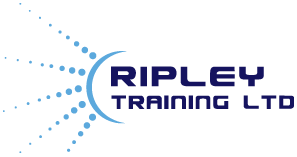Trade Show Marketing
Trade show marketing is said to be the ‘biggest marketing expenditure’ for B2B businesses, accounting for an average of 16% of total marketing spend – which is more than online, email, print or direct marketing put together! So as ‘exhibition season’ is officially here, and with all the planning, resources and money spent on exhibitions and tradeshows, are you truly seeing great results from your efforts?
Exhibition Marketing
Exhibitions are a highly effective marketing tool; with 88% of exhibition visitors being personally involved in buying your products or services. Coupled with the fact that 91% of decision makers find exhibitions an ‘extremely useful source of purchasing information’, it is therefore crucial that you have the right skills and knowledge to optimise the time, skills and money that you invest. We’ve put together some key tips to show you how to do just that:
1) Set Clear Objectives
By setting objectives for your trade show, these form the benchmarks upon which to measure the event’s success. As exhibitions can be a significant financial investment, you’ll want to ensure your exhibition spend will make a positive impact on your brand and sales growth. Typical objectives can include generating leads/making sales to new and existing customers. Ask yourself – how many leads do we need to generate to at least break even?
2) Do Your Market Research
Think about your target customers and buyers. What is their biggest fear/need at the moment? How can your product/service help to solve this? Once you know this, make it the focus of your stand, and if there’s an opportunity, you should speak about this topic at one of the exhibition’s relevant seminars. And remember – always sell the end result; the solution to their problem.
3) Add Value to the Brand Experience
Why should visitors come to your stand? Well, give them a reason to! Then promote this reason on all approaches to the stand; such as pre-event PR and invitations, through to banner advertising in the exhibition hall and an advert in the show guide or magazine. Some examples of how you can add value could include:
- Free Prize Draws – with questionnaire to capture visitor data. These have proved very effective in the past as people actually have the time to complete them.
- Free consultations – a great way to demonstrate how you have the solution to their problem, as in point 2.
- Free services, e.g. shoulder massages – These are perfect for weary visitors who may have been on their feet all day!
- Giveaways – Everyone loves a freebie! But try not to go down the ‘gimmick’ route – think about using promotional items that reflect your brand in some way, and are relevant/useful to the customer.
4) Pre-show PR and Direct Marketing
In your pre-event promotions, you need to make customers and prospects feel that they’ll be missing out if they don’t attend. So make sure that you start contacting people early – at least three months ahead of the event, to get qualified leads/clients to attend your stand. Check with the exhibition organiser what promotional opportunities are available – such as which media are doing pre-show previews? Are there any sponsorship opportunities? Are they sending out email marketing promotions to visitors and is there an opportunity to pay for an advert or space for some editorial copy? You can also engage your own email marketing promotion in the lead up to the event, and send out e-invites and e-bulletins in advance to drum up plenty of interest.
5) Train Your Stand Staff To Deliver Your Objectives
Pre-event staff training is fundamental to delivering your objectives. The people who work on your exhibition stand are representing your company and brand, and will therefore need to portray the best image – both in how they look, and in how they behave. It’s also important to understand that often, exhibition visitors prefer to speak to staff with a technical background, rather than to sales/marketing people. This is because the technical team is more likely to know the answer to the problem they face/the needs they have, and less likely to make the hard sell. A suitable exhibition skills training course, such as that offered by Ripley Training, is a great way to train technical and non-sales staff the key skills required to maximise trade show effectiveness. And finally – make sure all stand staff know the answers to FAQs. If members of your technical team can’t attend, make sure you have some practical link to them, even if it’s just their mobile number.
At Ripley Training, we can help you take your exhibition strategy to the next level with expert training and support. Our Exhibition Skills Training Course covers all key stages of an exhibition to ensure you can make the most of your event and make a substantial return on investment. With courses running in Birmingham, Leeds, Edinburgh, Frimley and York.
Blog Written by Mike Smith

